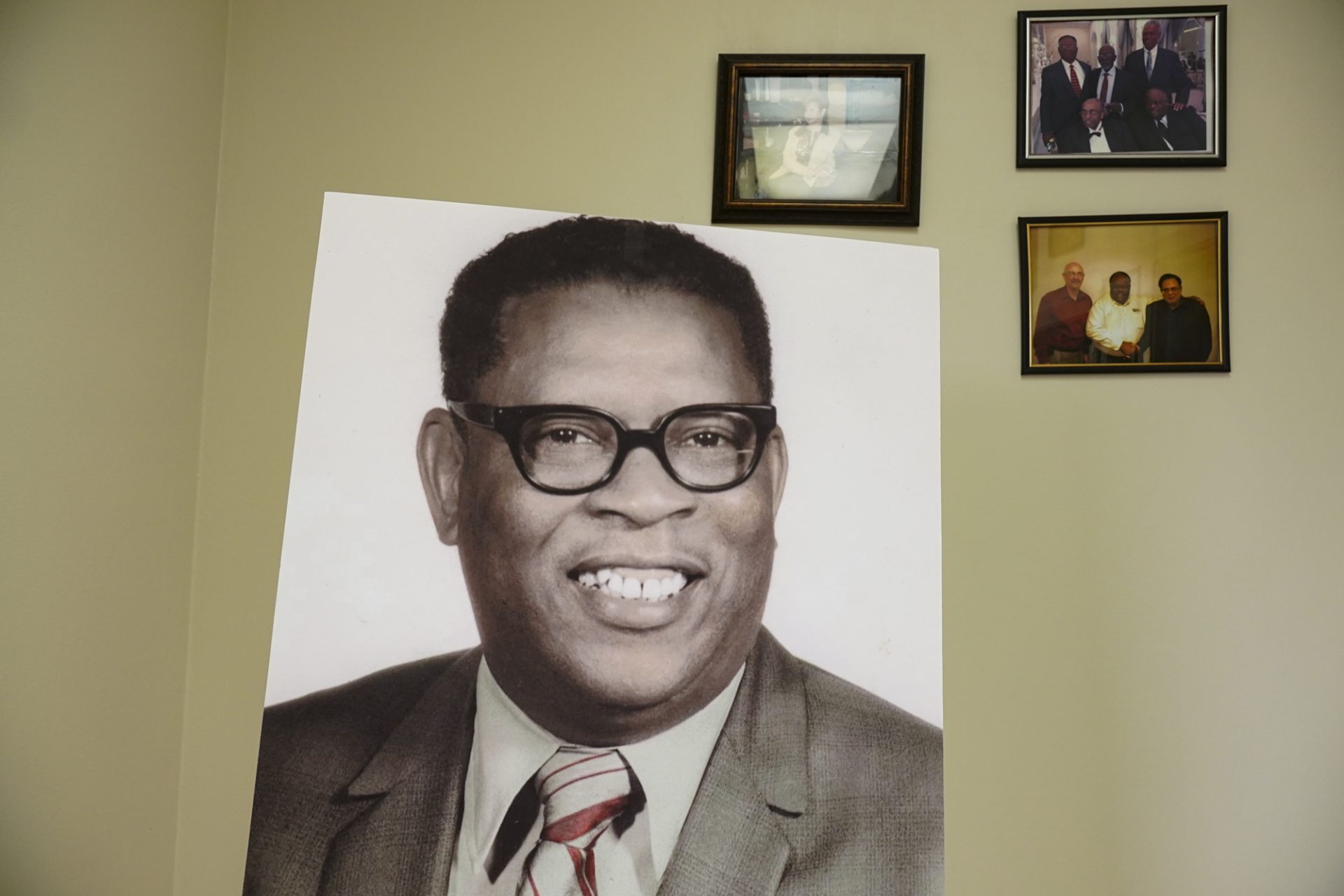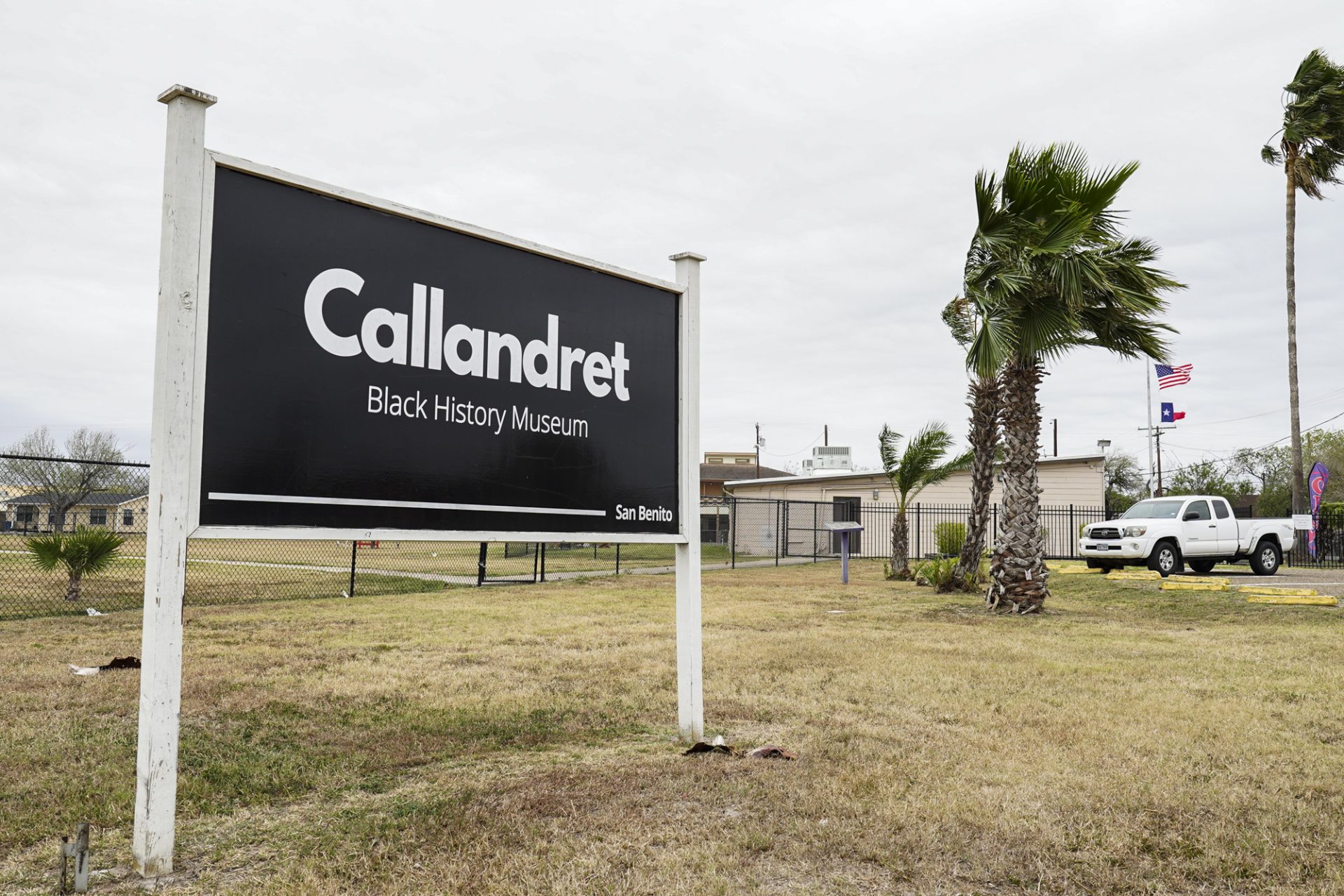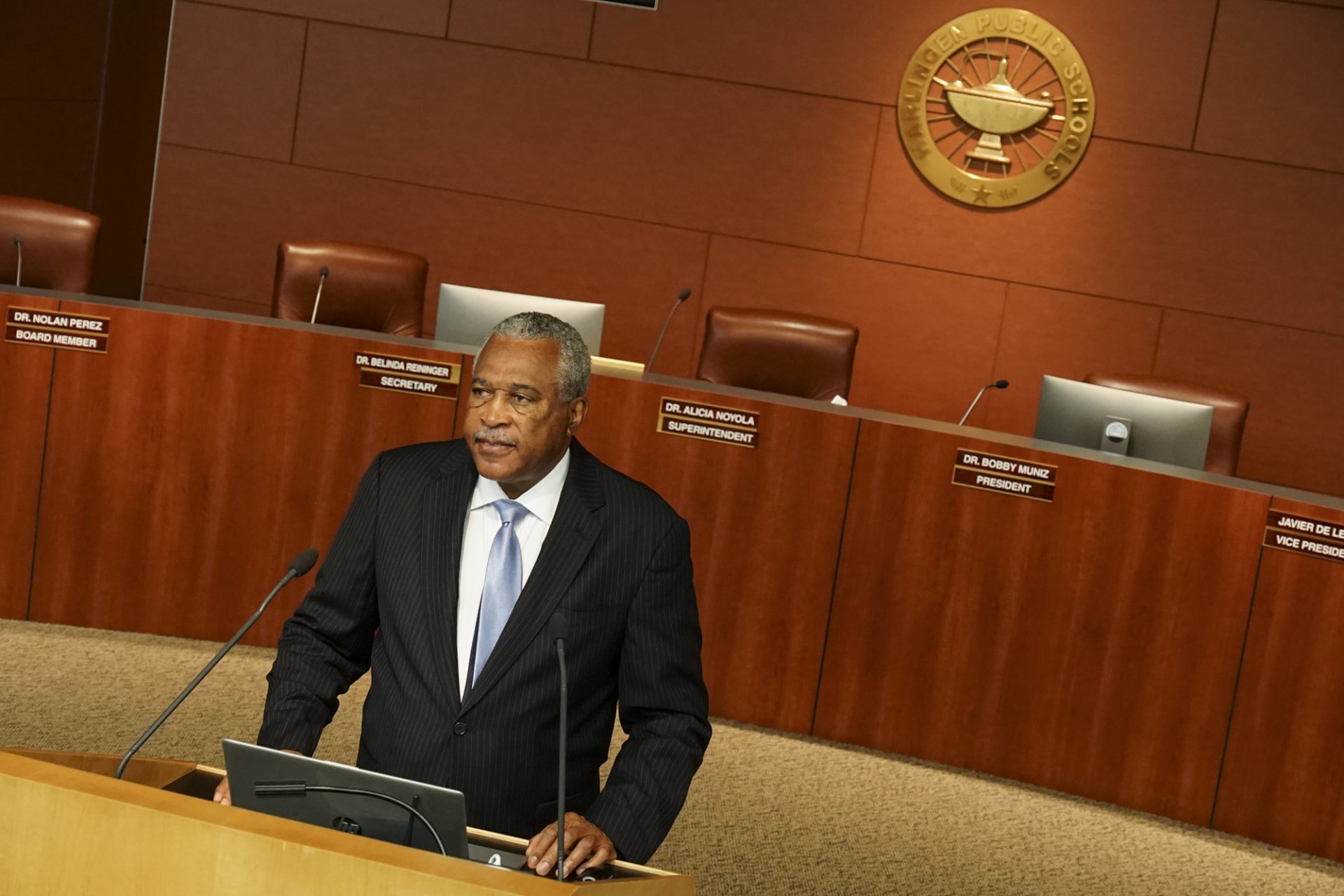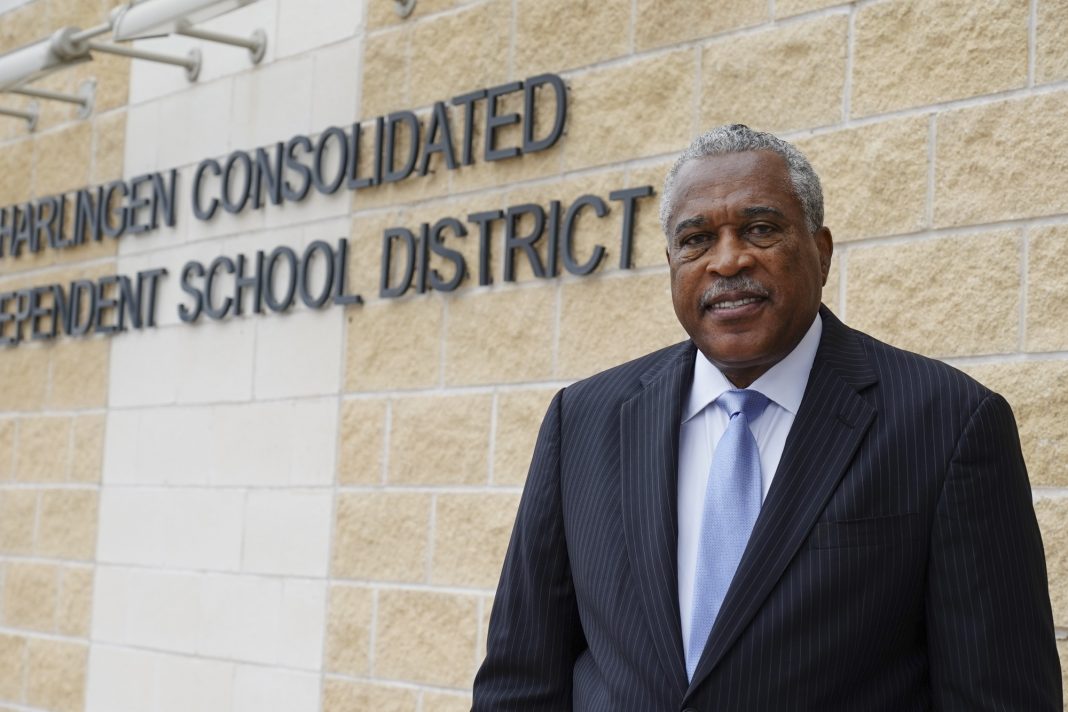There are so many people who come here and have got no idea Black people are here and have been here for a long time. Black people have been in the Rio Grande Valley since before the Civil War.
HARLINGEN — More than 100 years ago, the Rio Grande Valley’s first African American families were riding into the region, many working as farmhands across the new frontier.
When the St. Louis, Brownsville and Mexico Railway Co. opened rail lines in the area in 1904, more Black families moved into the region known as the White Horse Desert.
Today, the foundation the pioneers built has helped give rise to a growing Black community who has made inroads in business along with professions such as health and education.
On Saturday, the new Rio Grande Valley Black History Committee will showcase their lives at its event Celebrating Black Pioneers of the Rio Grande, marking Black History Month at the Harlingen Convention Center.
“It’s bringing Black history to life,” said George McShan, a longtime Harlingen school board member who served as Texas State Technical College’s dean of education. “It’s part of the history of the Rio Grande Valley.”
The event will honor many of the Valley’s Black pioneers, including Joe Callandret, a San Benito landowner; L.B. Davis, a Harlingen businessman; and railroad union leader Levi Jesse Benton Jr.
“The foundation was laid by those pioneers for people like myself, who became difference-makers,” McShan, who will serve as the event’s master of ceremonies, said.
Expanding Black History Month
In January, a group of area leaders formed the Black History Committee, chairman Lonnie Davis, L.B. Davis’ son, said.
“Black history is American history,” he said. “There are so many people who come here and have got no idea Black people are here and have been here for a long time. Black people have been in the Rio Grande Valley since before the Civil War.”
For years, Davis has worked to recognize Black History Month in Harlingen.
Now, he and the new organization are staging the city’s biggest event showcasing African Americans’ contributions.
“We’ve been doing this for 20 years in Harlingen,” Davis said. “Now we’re doing it for the Rio Grande Valley. We wanted the total Rio Grande Valley involved in Black History Month so it would be Valley-wide.”

San Benito roots
In the early 1900s, Davis’ grandparents D. and Mary Davis and their family were bound for Mexico.
But her fears of Mexico’s bandits led her family to settle in San Benito, Lonnie Davis said.
“They were trying to go to Mexico because you could own land there — you couldn’t own land here,” he said.
So the family settled in the El Jardin neighborhood, where about 25 African American families were building one of the area’s biggest Black communities.
Knowing the building’s history, we were happy to transform it into a museum and remodel it to its original purpose — a classroom to educate the Black children of San Benito.
By 1947, Davis was a student in the city’s all-Black school, which included two out-houses — one for boys and one for girls — during the era of segregation.
For years, a one-room wooden schoolhouse helped give the area’s African American children an education until Fannie Callandret, Joe Callandret’s wife, donated land on which the San Benito school district built a brick two-room school.
“Most of these folks were farmhands,” Lonnie Davis, 80, said, referring to the area’s Black community in the early 1920s. “A lot worked for Joe Calandret. He owned a lot of land.”
At the edge of El Jardin, the old schoolhouse still stands.
In 2020, the San Benito Historical Society turned the old schoolhouse into the Callandret Black History Museum, named for Joe Caldandret, who rode in from Louisiana to become a farmer.

“The ‘colored school’ in San Benito has always been an icon in the history of the town,” Sandra Tumberlinson, the historical society’s co-founder who serves as a member of the Black History Committee, stated. “When the school district decided to vacate the building, it was offered to the San Benito Historical Society for rent. Knowing the building’s history, we were happy to transform it into a museum and remodel it to its original purpose — a classroom to educate the Black children of San Benito.”
In El Jardin, Davis grew up with neighbors like Baldemar Huerta, who would become the Grammy Award-winning singer known as Freddy Fender.
“The house where I was born is still standing on Winchell Street,” Davis recalled. “That’s Freddy Fender’s old barrio and I remember him well. We all played together outside. But when it came to school, we separated.”
In 1964, his father L.B Davis opened Davis Office Machines, building the family business into one of the Valley’s biggest office equipment companies.
Today, Lonnie Davis is owner of Finance and Insurance Systems in Harlingen.
“We’ve been here a long time,” he said. “We’re here now, our roots are established, our presence is valued and our future is growing.”
Growing community
In 1968, McShan moved to the Valley from the central Texas town of Elgin after a military draft deferment led him to take a teacher’s job with the Brownsville school district.
“I was probably the first male Black teacher in Brownsville,” he said. “I’ve seen tremendous changes. The landscape has changed tremendously. When I got here, there were so few Black people. I was on the ground floor of the change.”

McShan went on to take a job at Texas State Technical College, where he would serve as dean of instruction for 20 years, helping to launch educational programs in health, computer programming, robotics, aviation technology and dental hygiene.
From 1988 to 2018, he served on the Harlingen school board before serving as president of the Texas Association of School Boards from 1998 to 1999 and president of the National School Board Association from 2004 to 2005.
We’re here now, our roots are established, our presence is valued and our future is growing.
In Harlingen, the city’s growing medical complex, including the University of Texas-Rio Grande Valley’s medical school, is leading many African Americans to settle in the Valley.
“The Valley has a storage of physicians so with the medical school there’s a pipeline for Black physicians and health professionals,” McShan said. “When we look at the future, there are a lot of Black physicians, a lot of Black health professionals throughout the RGV.”
Across the region, African Americans have become part of the Valley’s social fabric.
“We want to be part of the entire community,” McShan said. “We want to show diversity. We want to see Blacks serving in all jobs in business and in the public (sector).”





